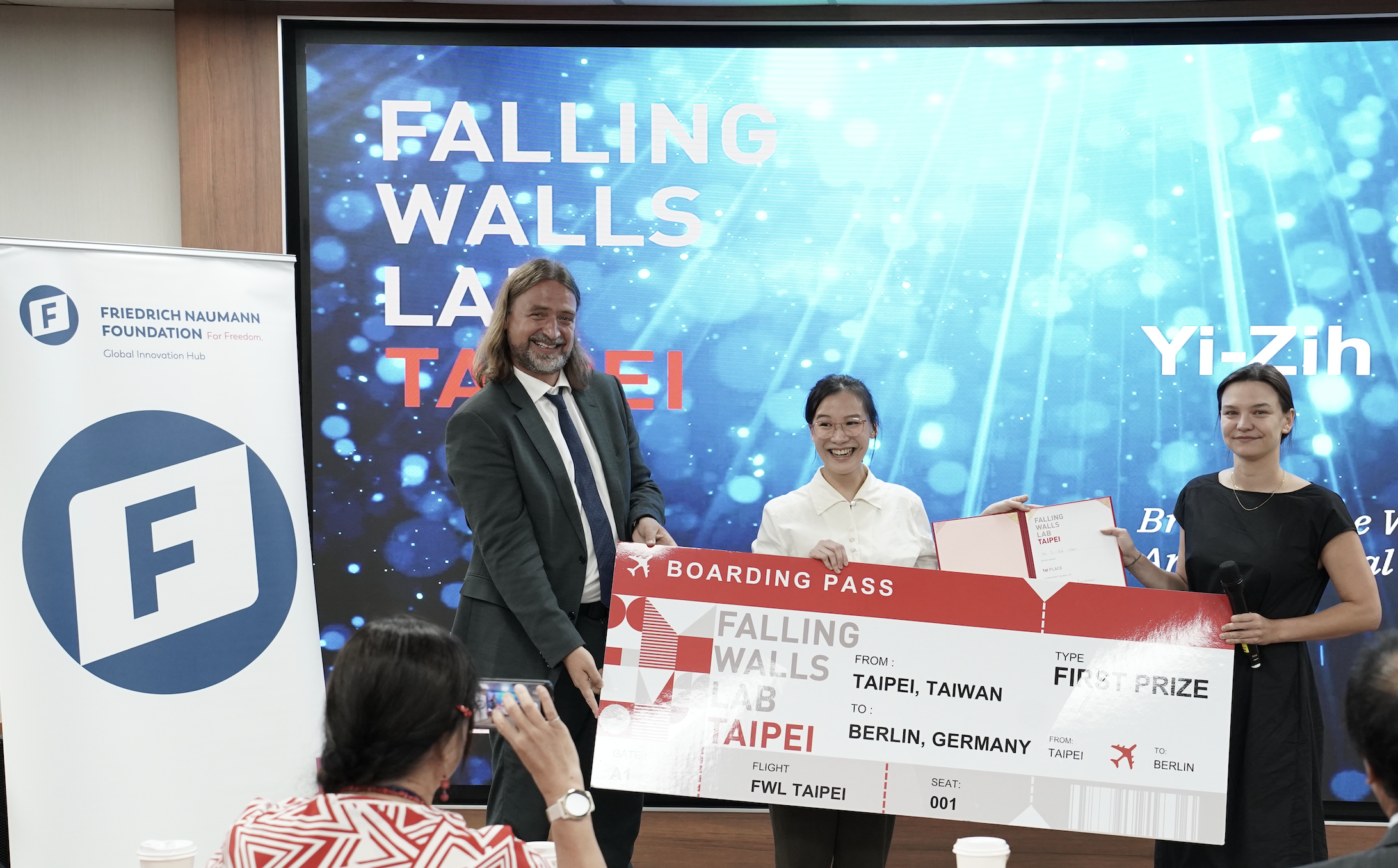Event
Taiwan Student Triumphs in Falling Walls Lab, to Represent Taiwan at Global Finals in Germany

The 2024 Falling Walls Lab held its Taipei preliminary competition today (11th). Student Yi-Zih Chen from the Graduate Institute of Data Science, College of Electrical Engineering and Computer Science at National Taiwan University, won the competition to represent Taiwan at the global finals in Berlin this November.
The Falling Walls Foundation started this innovation competition in 2009, and the Taipei venue was first included in 2020 by the German Academic Exchange Service (DAAD) Information Center Taipei. This year marks the fifth time the Falling Walls Lab preliminary round has been held in Taipei, co-hosted by the Friedrich Naumann Foundation (FNF) Global Innovation Hub and Taipei Office, the DAAD Information Center Taipei, and the National Science and Technology Council (NSTC).
A total of 17 participants passed the initial screening by the organizers this year, with undergraduate and graduate students from institutions such as National Taiwan University, National Taipei University of Technology, Tamkang University, and China Medical University, Taiwan. The topics covered a wide range, including physics, chemical engineering, biomedical science, and epidemiology.
The competition was conducted entirely in English, with participants presenting their research in a three-minute pitch, clearly outlining the problems they aim to solve and their solutions, followed by a Q&A session with the jury. This year's Taipei preliminary jury comprised representatives from German institutions in Taiwan and invited academic experts, who selected the top three winners on the day of the event. The judging criteria were breakthrough factor, relevance & impact, and structure & performance.
Céline Nauer, Project Advisor of the FNF Global Innovation Hub, remarked, “The FNF views education as a fundamental pillar of democratic societies. We are delighted to host this innovative event that fosters academic exchange between Taiwan and Germany. We believe this competition will enable the innovative ideas of Taiwanese young scholars to achieve greater international recognition, and encourage cross-cultural collaborations.”
Yu-Chen Huang, Deputy Director General of the Department of International Cooperation and Science Education at the NSTC, explained that Taiwan and Germany have long-term academic cooperation programs and are committed to fostering talent exchange. For instance, this year's Taiwan-Germany summer camp program includes 10 Taiwanese graduate students studying in Germany for three months, while seven German students will come to Taiwan at the end of July. There is also a "Sandwich Program" designed for Ph.D. candidates to conduct research in German institutions for a year, with applications open until the end of July.
Julian Goldmann, Science and Technology Officer at the German Institute Taipei, emphasized that in a time of multiple global crises and political uncertainty, it is not only important that there be bright young minds that propose innovative solutions to societal challenges. It is also essential that they are willing and able to communicate their research to other disciplines and to the general public. Taiwan and Germany share a tradition of valuing science for its positive contributions to society. This is why Falling Walls is such a suitable platform for strengthening German-Taiwanese academic exchange across disciplines.
Today's winner, Yi-Zih Chen, presented an innovative idea titled "Breaking the Wall of Antimicrobial Resistance." Syuan-Yu Lin, a master's student from the Department of Psychology at National Taiwan University, won second place with the idea "Breaking the Wall of Reading Brain Decoding." Rajarshi Sarkar, a Ph.D. student from the Department of Electrical Engineering at Chang Gung University, won third place with the idea "Breaking the Wall of Proton Radiation Damages.
